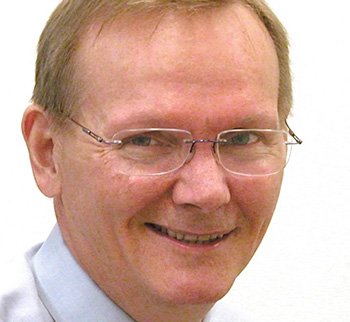TORONTO — Temple Emanu-El, the Reform congregation located in a leafy upscale neighbourhood in north Toronto, is selling off 1.5 acres of prime real estate at the eastern edge of the synagogue property.
The imminent sale of the land, which has been subdivided into three residential lots, is expected to raise $6 million. The funds will go toward an endowment fund that will ensure the synagogue’s financial viability for decades to come, said president Pekka Sinervo.
As of late last week, the temple’s board of directors had reviewed several offers and had put them before the temple membership, which must agree to the sale, according to the synagogue’s bylaws.
If the members accept the board’s recommendations, the deal should close in July, Sinervo said.
“The bottom line is that this creates a sustainable financial model for the congregation for the next half century,” Sinervo told The CJN. “This is the goal of the board, so we’re not worrying about finances, but what to do in our community.”
Like other congregations facing an aging membership, synagogue leaders had been concerned about the temple’s future financial health. Although the temple has no debt, it was becoming increasingly difficult to balance the budget, Sinervo said.
The infusion of funds and creation of an endowment, whose income stream will lessen the financial burden on current members, will mean the synagogue can renovate and improve the facilities, he said.
The funds will also permit the temple to better reach out to potential new congregants, who will know that the building’s finances – and annual fees – are stable and unlikely to balloon, he added.
A little less than 10 per cent of the proceeds of the sale are earmarked for parking lot improvements – a condition imposed by the City of Toronto to approve the deal – while other funds will go towards “a facelift” of the social hall, renovations of washrooms, a new roof and “freshening up” the temple’s school.
At one time it was thought the surplus land might be used for subsequent expansion, but the congregation now stands at 330 families, below the maximum 410 permitted by the temple’s bylaws.
Sinervo said discussions over disposition of the land began in 1990. The eastern edge of the property was unused, except as a parking lot during the High Holidays, prompting some to call it “the most expensive parking lot in the city,” he said.
In 2008, the temple concluded a strategic plan that recommended monetizing the surplus land.
A proposal was placed before city authorities in 2013, and in January 2014, the committee of adjustment approved the proposal, which included the creation of three residential lots. One had access from Vyner Road and two were accessible from Swansdown Drive. All the proposed properties will be at the end of cul-de-sacs.
Each is approximately half an acre in size and would see construction of 5,000- to 6,000-square-foot homes, with plenty of land left over for yards or pools, said Sinervo.
The properties were listed for sale on March 10, and on March 24, the temple received multiple offers from builders and individual purchasers.
Sinervo expects all three houses to be completed in about two years.
Temple Emanu-El has been a fixture in the neighbourhood for more than 50 years. Groundbreaking ceremonies for the temple, located on six-and-a-half acres of land at the eastern end of Old Colony Road, took place in 1960, and the first religious services were held in 1963.
In 1969-70, Temple Emanu-El merged with the Beth-El congregation. For a time, the temple also housed Leo Baeck Day School. The congregation prides itself in being a “vibrant, progressive community committed to Jewish renewal at home” and dedicated to tikkun olam, or social justice.
